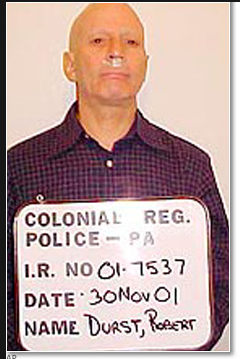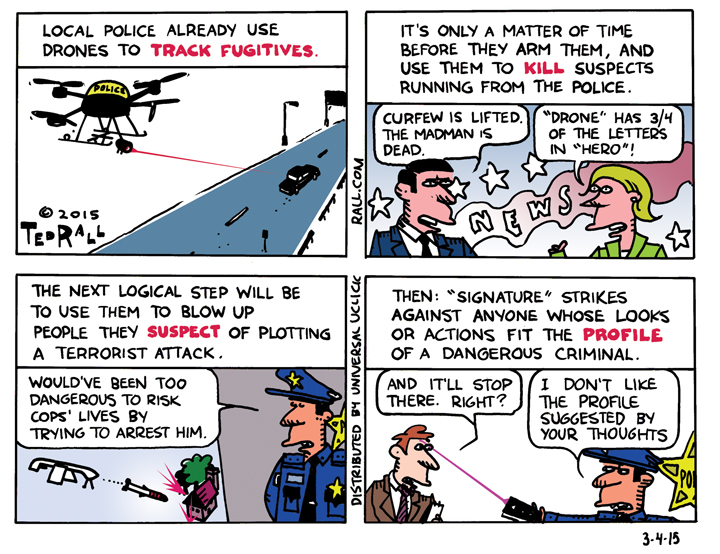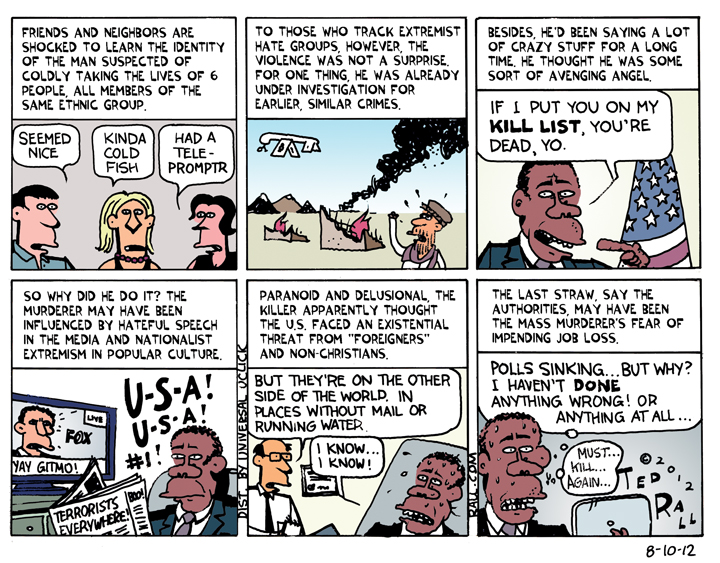Originally published by ANewDomain.net:
Dead-eyed mass murder suspect Robert Durst’s riveting open-mic soliloquy in the last episode of HBO’s “The Jinx” true-crime miniseries places him at the center of a media frenzy that obsessed over a dramatic couplet that may or may not constitute a confession: “What the hell did I do? Killed them all, of course.”
Who is or who was this “all?”
How many?
Lost in the haze of discussion and debate about this “Gone Girl”-esque mash-up of infotainment and policing — the cops arrested him the day of the documentary’s finale — is another line uttered by Durst in that restroom, one that has been ignored by the media:
“But, you can’t imagine.”
Can’t imagine what?
Here’s a complete transcript of Durst talking to himself:
There it is. You’re caught. You’re right, of course. But, you can’t imagine. Arrest him. I don’t know what’s in the house. Oh, I want this. What a disaster. He was right. I was wrong. And the burping. I’m having difficulty with the question ‘What the hell did I do?’ Killed them all, of course.”
Usually, like when news anchors were blaming Al Qaeda within hours after the 9/11 attacks, the media speculates too much. This time, a failure to speculate may be missing a bigger story: that Durst may have killed more than three people.
“You can’t imagine.” What did Durst mean?
There are several ways to interpret that. The first one that came to my mind was: You can’t imagine how much bigger this is…how many more victims there really are.
Durst has been charged with the 2000 execution-style murder of his friend Susan Berman, possibly to prevent her from testifying against him about the disappearance and presumed murder of his first wife, Kathleen, in 1982. He killed and chopped up a neighbor’s body in Texas in 2003. A Texas jury declared it self-defense and acquitted him.
 Assuming that Durst killed all three, the 18-year gap between the Kathleen Durst and Susan Berman murders would be unusual. It wouldn’t be unprecedented — California’s Lonnie Franklin Jr. earned the nickname the “Grim Sleeper” due to a 13-year space between killings of sex workers. Still, 18 years is a long time for a serial killer to refrain from taking a life.
Assuming that Durst killed all three, the 18-year gap between the Kathleen Durst and Susan Berman murders would be unusual. It wouldn’t be unprecedented — California’s Lonnie Franklin Jr. earned the nickname the “Grim Sleeper” due to a 13-year space between killings of sex workers. Still, 18 years is a long time for a serial killer to refrain from taking a life.
In several respects, Durst fits the typical profile of a psychopathic serial killer more than of a man who killed his wife in a fit of range during a domestic dispute. This includes a history of cruelty to animals that predates his first known killing.
His brother Douglas, who lived in fear of his brother, claims that as a young man Robert owned seven malamutes, all named Igor, who “died, mysteriously, of different things, within six months of his owning them. We don’t know how they died, and what happened to their bodies. In retrospect, I now believe he was practicing killing and disposing his wife with those dogs.”
Durst reportedly used the term “doing an Igor” to refer to murdering someone.
The judge who presided over Robert’s trial in the Texas case found “a perfectly clean and preserved cat head cut up by someone who knew what they were doing” at her front door after his acquittal. She believes it was Durst.
Serial killers sometimes mark their territory. Douglas’ break with his brother moved toward finality in the 1990s, when he discovered that Robert had been urinating in the wastepaper basket at the New York real estate company where both worked.
Robert was considered a “prime suspect” in the 1997 disappearance of Karen Mitchell, 16, in Eureka, California. He was never charged.
“You can’t imagine.”


